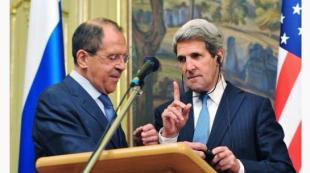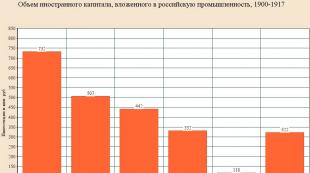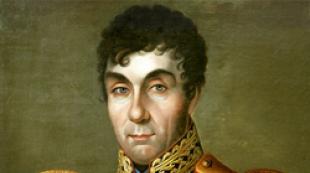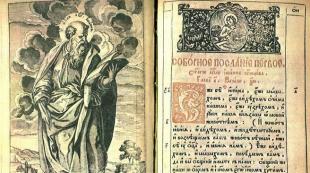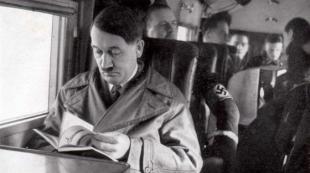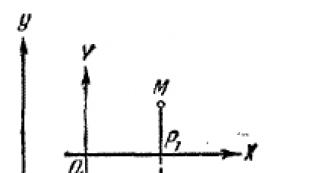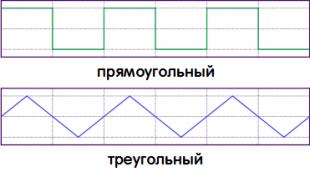Years of activity with Ju Witte. Sergei Yulievich Witte. One meeting with Stolypin
S.Yu. Witte was born in Tiflis on June 17, 1849 and was brought up in the family of his grandfather A.M. Saratov governor, and then a member of the management council of the Caucasian governor and manager of the expedition of state property of the Transcaucasian Territory.
He came from little-known Russified Germans who became nobles in 1856 (although he himself promoted a version of hereditary nobility and loyalty to Orthodoxy). Witte's early years were spent in Tiflis and Odessa, where, in 1870, he completed a course of science at the Novorossiysk University in the Faculty of Mathematics with a Ph.D., writing a thesis "On infinitesimal quantities." The young mathematician thought of staying at the university to prepare for a professorship. But the youthful passion for the actress Sokolova distracted him from scientific studies and the preparation of another dissertation on astronomy. In addition, Witte's mother and uncle rebelled against Witte's academic career, saying that "this is not a noble matter." On July 1, 1871, Witte was ranked as an official in the office of the Novorossiysk and Bessarabsk Governor-General, and two years later he was appointed clerk. In the management of the Odessa Railways, where his uncle assigned him to serve, he studied railway business in practice, starting from the lowest levels, having been in the role of a freight service clerk and even an assistant driver, but soon, having taken the position of head of traffic, he turned into a major railway entrepreneur . However, in April 1877, he applied for his dismissal from public service.
After the end of the Russian-Turkish war of 1877-1878. the railway owned by the treasury was merged into the private Society of Southwestern Railways. There, Witte got the job of head of the operations department. The new appointment required a move to St. Petersburg. He lived in the capital for about two years. The events of March 1, 1881, which left a noticeable mark on Witte's biography, found him already in Kyiv. At this time, Witte was influenced by Slavophile ideas, was fond of theological writings; he became close to the leaders of the "Slavic movement"; as soon as the news of the assassination attempt on Alexander II reached Kiev, Witte wrote to the capital Fadeev and presented the idea of creating a noble conspiratorial organization to protect the emperor and fight the revolutionaries with their own methods. Fadeev picked up this idea in St. Petersburg and, with the help of Vorontsov-Dashkov, created the notorious "Holy Squad". In mid-March 1881, Witte was initiated into its members in St. Petersburg. He was appointed the chief ruler of the squad in the Kiev region. Witte was zealous in the performance of the duties assigned to him by the squad. By her order, he was sent to Paris to organize an assassination attempt on the famous populist revolutionary L.N. Hartman, participated in the literary enterprises of the squad of a provocative nature, in particular, in compiling a brochure published (Kiev, 1882) under the pseudonym "Free Thinker", containing criticism of the program and activities of the "Narodnaya Volya" and predicting its death.
At the end of April 1881, Alexander III took the side of the enemies of any changes in the system of state administration. (M.N. Katkov and K.P. Pobedonostsev). This was followed by the removal of the Minister of the Interior, Count N.P., who patronized the Druzhina. Ignatiev, "Druzhina" was liquidated.
In 1887, Witte served as manager of the Southwestern Railways, and in 1889 he was promoted to Director of the Department of Railways in the Treasury (losing revenue in the process). Witte, with his characteristic energy, began to conquer St. Petersburg; at the beginning of 1892 he was already the Minister of Railways.
Further promotion through the ranks was complicated for him by a new marriage after the death of his first wife. His second wife Matilda Ivanovna Witte (Nurok, by her first marriage, Lisapevich) was a divorced Jewess. Despite all the efforts of Witte, she was not accepted at court. However, the marriage took place with the consent of Alexander III.
In August 1892, due to Vyshnegradsky's illness, Witte became his successor as Minister of Finance. Having taken the chair as one of the most influential ministers, Witte showed himself to be a real politician. He remained in this post for 11 years - from 1892 to 1903. Here he proved himself a supporter of the industrialization of the country for the Western European maneuver. Witte has repeatedly stressed that Russia has unique natural resources that are still dead weight. By the beginning of the 20th century, Witte had a clear program for the development of the economy: to catch up with the industrialized countries, take a strong position in trade with the East, ensure an active foreign trade balance, and all this - with unlimited state intervention in the economy and stable autocratic power.
Witte Sergei Yulievich (1849-1915). Count, Russian statesman. He began his career as the head of the traffic service of the Odessa branch of the South-Western Railways. In 1879 he worked in St. Petersburg as the head of the exploitation department on the board of the South-Western Railways. In 1888 he was appointed director of the department of railway affairs and chairman of the tariff committee, and in 1892 he became the manager of the Ministry of Railways. At the end of the same year, Witte was appointed to the post of Minister of Finance, which he held for 11 years. In this post, he made the famous reform - the transition to gold circulation. Witte's undoubted merit is the monetary reform he carried out in 1897, which strengthened a stable gold currency in Russia until the war of 1914, replacing the former paper one, and created the prerequisites for the import of foreign capital into Russia. In 1903, he assumed the duties of chairman of the committee of ministers. The last position was actually an honorary resignation, since the committee had no significance before the 1905 revolution. This move from the post of all-powerful master of finances to the post of powerless chairman of the committee came under pressure from the noble-landlord elements of the government (mainly Plehve), who were dissatisfied with Witte's patronizing attitude and his flirting with moderate liberals. During the events of January 9, Witte disclaimed any responsibility for the actions of the government. In the summer of 1905, Nicholas sent Witte to Portsmouth to conclude a peace treaty with Japan. For the successful execution of this order, Witte was elevated to the rank of count. In the days of the October strike, when the policy of an agreement with the bourgeoisie prevailed, Witte turned out to be the most suitable person for the post of prime minister. The October 17 Manifesto is the brainchild of Witte. After the defeat of the revolution, when the autocracy felt solid ground beneath it, Witte again left the stage. Witte's last disgrace lasted until his death (1915). All 1000 biographies alphabetically:
- - - - - - - - - - - - - - -
Witte's reforms of 1892-1903 were carried out in Russia in order to eliminate the backlog of industry from Western countries. Scholars often refer to these reforms as the industrialization of tsarist Russia. Their specificity was that the reforms covered all the main spheres of the state's life, allowing the economy to make a colossal leap. That is why today such a term as the "golden decade" of Russian industry is used.
Witte's reforms are characterized by the following activities:
- Increase in tax revenues. Tax revenues have increased by about 50%, but we are not talking about direct, but about indirect taxes. Indirect taxes are the imposition of additional taxes on the sale of goods and services, which are borne by the seller and paid towards the state.
- Introduction of the wine monopoly in 1895. The sale of alcoholic beverages was declared a state monopoly, and only this item of income accounted for 28% of the budget of the Russian Empire. In money it is expressed approximately 500 million rubles a year.
- Gold backing of the Russian ruble. In 1897 S.Yu. Witte carried out a monetary reform, providing the ruble with gold. Banknotes were freely exchanged for gold bars, as a result of which the Russian economy and its currency became interesting for investment.
- Accelerated construction of railways. Approximately 2.7 thousand km of railway were built per year. This may seem like an insignificant aspect of the reform, but at that time it was very important for the state. Suffice it to say that in the war with Japan, one of the key factors in the defeat of Russia was the insufficient equipment of the railway, which made it difficult to move and move troops.
- Since 1899, restrictions on the import of foreign capital and the export of capital from Russia were lifted.
- In 1891, customs tariffs for the import of products were increased. It was a forced step that contributed to the support of local producers. It is thanks to this that the potential within the country has been created.
Brief table of reforms
| Reform | Year | Tasks | Consequences |
|---|---|---|---|
| "Wine" reform | 1895 | Creation of a state monopoly on the sale of all alcoholic products, including wine. | Increasing budget revenues up to 500 million rubles a year. "Wine" money is about 28% of the budget. |
| Monetary reform | 1897 | Introduction of the gold standard, backing the Russian ruble with gold | Reduced inflation in the country. Restored international confidence in the ruble. Price stabilization. conditions for foreign investment. |
| Protectionism | 1891 | Support for domestic producers by increasing customs duties on the import of goods from abroad. | Industry growth. economic recovery of the country. |
| tax reform | 1890 | Increasing budget revenues. | Introduction of additional indirect taxes on sugar, kerosene, matches, tobacco. For the first time, the "apartment tax" was introduced. Increased taxes on the execution of state documents. Tax revenues increased by 42.7%. |
Preparing reforms
Until 1892, Sergei Yulievich Witte served as Minister of Railways. In 1892, he moved to the post of Minister of Finance of the Russian Empire. At that time, it was the Minister of Finance who determined the entire economic policy of the country. Witte adhered to the ideas of a comprehensive transformation of the country's economy. His opponent was Plehve, who promoted the classical path of development. Alexander 3, realizing that at the current stage the economy needed real reforms and transformations, sided with Witte, appointing him as Minister of Finance, thereby completely entrusting this person with the formation of the country's economy.
The main task of the economic reforms of the late 19th century was to ensure that within 10 years Russia would catch up with the Western countries, and also gain a foothold in the markets of the Near, Middle and Far East.
Monetary reform and investment
Today, one often talks about the phenomenal economic performance achieved by the Stalinist five-year plans, but their essence was almost completely borrowed from Witte's reforms. The only difference was that in the USSR, new enterprises did not become private property. Sergei Yulievich proposed to carry out the industrialization of the country in 10 years or in five years. The finances of the Russian Empire at that time were in a deplorable state. The main problem was high inflation, which was generated by payments to landlords, as well as continuous wars.
To solve this problem in 1897, Witte's monetary reform was carried out. The essence of this reform can be briefly described as follows - the Russian ruble was now backed by gold, or a gold standard was introduced. Thanks to this, investor confidence in the Russian ruble has increased. The state issued only the amount of money that was actually backed by gold. The banknote could be exchanged for gold at any time.
The results of Witte's monetary reform appeared very quickly. Already in 1898, significant amounts of capital began to be invested in Russia. Moreover, this capital was mostly foreign. Largely due to this capital, it became possible to carry out large-scale construction of railways throughout the country. The Trans-Siberian Railway and the Chinese Eastern Railway were built precisely thanks to Witte's reforms, and with foreign capital.
Foreign capital inflow
One of the effects of Witte's monetary reform and his economic policy was the influx of foreign capital into Russia. The total investment in Russian industry amounted to 2.3 billion rubles. The main countries that invested in the Russian economy in the late 19th and early 20th centuries:
- France - 732 million
- United Kingdom - 507 million
- Germany - 442 million
- Belgium - 382 million
- USA - 178 million

There were both positives and negatives in foreign capital. The industry, built with Western money, was completely controlled by foreign owners, who were interested in profit, but not in the development of Russia. The state, of course, controlled these enterprises, but operational decisions were all made locally. A striking example of what this leads to is the Lena massacre. Today, this topic is being speculated to accuse Nicholas 2 of harsh working conditions for workers, but in fact the enterprise was completely controlled by English industrialists, and it was their actions that led to a rebellion and execution of people in Russia.
Evaluation of reforms
In Russian society, Witte's reforms were perceived negatively, and by all people. The main critic of the economic policy pursued was Nicholas 2, who called the Minister of Finance a "republican". The result is a paradoxical situation. Representatives of the autocracy did not like Witte, calling him a republican or a person who supported an anti-Russian position, and the revolutionaries did not like Witte because he supported the autocracy. Which of these people was right? It is impossible to unequivocally answer this question, but it was the reforms of Sergei Yulievich that strengthened the positions of industrialists and capitalists in Russia. And this, in turn, was one of the reasons for the collapse of the Russian Empire.
Nevertheless, thanks to the measures taken, Russia has taken the 5th place in the world in terms of total industrial production.

Results of economic policy S.Yu. Witte
- The number of industrial enterprises has grown significantly. Just the country was about 40%. For example, there were 2 metallurgical plants in the Donbass, and 15 more were built during the reform period. Of these 15, 13 plants were built by foreigners.
- Production increased: oil 2.9 times, pig iron 3.7 times, steam locomotives 10 times, steel 7.2 times.
- In terms of industrial growth, Russia came out on top in the world.

The main emphasis was placed on the development of heavy industry by reducing the share of light industry. One of the problems was that the main enterprises were built in cities or within the city. This created the conditions under which the proletariat began to settle in industrial centers. The migration of people from the village to the city began, and it was these people who later played their role in the revolution.
In the history of Russia in the late XIX - early XX centuries. S.Yu. Witte occupies an extremely important place. The head of the Ministry of Railways, the long-term Minister of Finance, the Chairman of the Committee of Ministers, the first head of the Council of Ministers, a member of the State Council - these are the official posts of this political figure, who has become a symbol of the possibility and at the same time the helplessness of the state system.
In 1892, Witte took over as Minister of Finance. Witte's most important task was to encourage the development of domestic industry. He considered industry to be the locomotive of the national economy. In his work, he relied on the concept of Friedrich List - “ theory of national economy”, the essence of which was that “poor countries” need to achieve a balance of imports and exports with the help of customs protection.
Industrialization required significant capital investments from the budget, which was supposed to ensure the implementation of the developed policy. One of the directions of the reform he carried out was the introduction in 1894 of state wine monopoly, which became the main revenue item of the budget (365 million rubles per year). have been increased taxes, primarily indirect (they increased by 42.7% in the 1990s). Was introduced, i.e. free exchange of the ruble for gold.
The latter made it possible to attract foreign capital into the Russian economy, because foreign investors could now take gold rubles out of Russia. customs tariff protected domestic industry from foreign competition, the government encouraged private enterprise. During the years of the economic crisis of 1900-1903. the government generously subsidized both public and private enterprises. Gets spread concession system, the issuance of government orders to entrepreneurs for a long time at inflated prices. All this was a good stimulus for domestic industry.
However, the process of industrialization in Russia was contradictory. Capitalist methods of management (profit, cost, etc.) did not touch the public sector of the economy - the largest in the world. These were defense factories. And this created a certain imbalance in the capitalist development of the country.
In his reforming activities, Witte had to experience resistance from the aristocracy and higher officials, who had a great influence on the reigning persons. The most active opponent of Witte was the Minister of the Interior VC. Plehve. His course of social policy is opposition to reforms, upholding conservative principle of development, retaining invariably the privileges of the nobility to power, and, consequently, the preservation of feudal remnants. This trend of confrontation between reforms and counter-reforms at the turn of the two centuries ended not in Witte's favor.
Changes in the world economic situation at the turn of the XIX - XX centuries. led to a crisis in industries that developed intensively in the 90s. — metallurgy, mechanical engineering, oil and coal mining industry. The minister's opponents accused him of the decline in Russian production, called his policy adventurous and disastrous for Russia. Dissatisfaction with Witte's policy led to his resignation in 1903.
He returned to the political arena in the autumn 1905 as heads of the Council of Ministers. In August 1905, he managed to conclude the Peace of Portsmouth with Japan, for this diplomatic success, Nicholas II granted him the title of count. The Russian reformer was again in demand in the political life of the country.
Russian statesman, honorary member of the St. Petersburg Academy of Sciences (1893). Minister of Railways in 1892, Finance since 1892, Chairman of the Cabinet of Ministers since 1903, Council of Ministers in 1905-1906. The initiator of the introduction of the wine monopoly (1894), the monetary reform (1897), the construction of the Siberian railway.
Sergei Yulievich Witte was born June 29, 1849 in Tbilisi in the family of the director of the Department of State Property in the Caucasus. Witte's paternal ancestors, Germans, moved to the Baltic states from Holland in the 17th century. According to his mother - the daughter of a member of the main department of the governor in the Caucasus - Witte's ancestry was conducted from the descendants of the princes Dolgoruky. The cousin of Sergei Yulievich along this line was Helena Petrovna Blavatsky, the founder of theosophical teachings.
In the 1860s he studied at the Faculty of Physics and Mathematics of the Novorossiysk University in Odessa. He studied at the expense of the Caucasian viceroy, because after the death of his father, Yuli Fedorovich Witte, the family could not pay for his education.
In the early 1870s, Witte was appointed head of the traffic office of the Odessa railway.
During the Russian-Turkish war (1877-1878) he distinguished himself by organizing the transportation of troops to the theater of operations, for which he received the post of head of the operational department of the South-Western Railway in St. Petersburg.
Published by him in 1883, the book "Principles of railway tariffs for the carriage of goods" brought him fame in financial circles.
At this time, Witte also wrote for the newspaper "Rus", which was published by Ivan Sergeevich Aksakov, collaborated with the Odessa Slavic Charitable Society.
In 1889, Sergei Witte was appointed director of the railway department of the Ministry of Finance.
From February 1892, he became the Minister of Communications, and from August 1892, in connection with the resignation of the Minister of Finance Vyshnegradsky, he took his post.
Witte initiated major economic measures: the Wine Monopoly was introduced (1894); the Siberian railway was built and railway construction was launched (1890s); the monetary reform was carried out (1897), according to which gold circulation was introduced and a free exchange of a credit ruble for gold was established.
On January 22, 1902, Witte founded the "Special Meeting on the Needs of the Agricultural Industry", at which the provisions were formulated that were subsequently used by Stolypin. Then the local committees of the meeting (82 provincial and regional and 536 county and district) spoke in favor of the voluntary transition of the peasants from communal ownership of land to household. But Nicholas II did not dare to carry out reforms, and the "Special Meeting" was closed on March 30, 1905.
During the years of the Russo-Japanese War, Witte sought to oppose Japan's policy in the Far East and, pursuing a course towards rapprochement with China, opposed the capture of Port Arthur. With his participation, a defensive alliance was concluded with China against Japan and an agreement on the construction of the Chinese Eastern Railway on the territory of Manchuria.
In August 1903, Witte was appointed to the post of Chairman of the Committee of Ministers, in this position he led the delegation that signed the Treaty of Portsmouth in 1905 with Japan, for which he received the title of count.
From October 1905 to April 1906 Witte was head of the Council of Ministers. During the October All-Russian political strike of 1905, he insisted on a program of concessions to the bourgeoisie, which found expression in the Manifesto of October 17, 1905.
At the same time, Witte was the initiator of sending punitive expeditions to Siberia, the Baltic states, and Poland; they were sent troops from St. Petersburg to suppress the Moscow armed uprising.
In 1906, he secured a loan of 2.25 billion francs from French bankers, which strengthened the government's position in the fight against the revolution. However, due to the growing criticism of his actions, both from the nobility and the bourgeoisie, Witte was forced to resign. The resignation was accepted on April 16, 1906.
